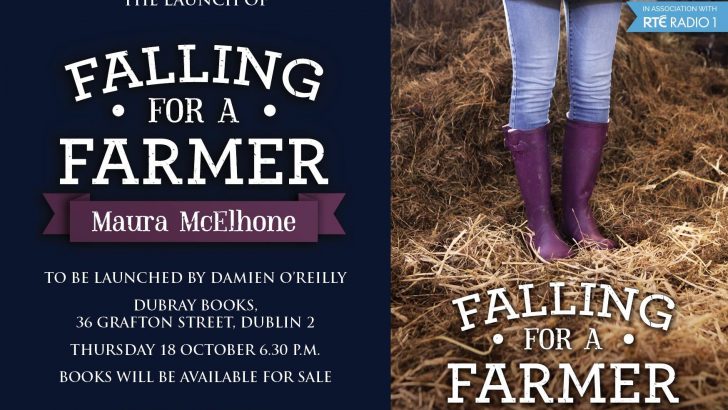Falling for a Farmer
by Maura McElhone (Mercier Press, €14.99)
In this beautifully written memoir Maura McElhone presents a perceptive mirror both to life on the farm and life in 21st-Century Ireland. This she achieves in a romantic tale about herself and a farmer, named Jack.
Maura, a native of Portstewart in Co. Derry, was educated locally and then studied at a university in Scotland. Later she graduated from UCG with a Masters.
She emigrated to the US, where in California she was employed in a publishing company. She revelled in the life-style of the Sunshine State: enjoying her work, workmates, new friends, US boyfriends and the sunshine.
Aged 30, she and her US boyfriend failed to agree where to settle in the event of their marrying. She ended the relationship and returned home.
Jack is the eldest in a family residing near Clane in Co. Kildare. A graduate in economics from UCD, he spent 10 years working in a bank in Dublin, while assisting his father on the home farm. Eventually he resigns from his city job and opts for full-time farming.
Not long after returning home Maura secures an appointment as a ‘Social Media and Community Manager’ in a new tech company in Dublin. She describes the challenges faced in securing suitable flat accommodation but also the pleasure of sharing it with congenial companions. The carefree life she shared with them included joining in Tinder digital dating.
After a number of disappointments in this up-to-date vehicle for ‘boy meets girl’, in steps Jack. He describes himself as a ‘banker/farmer’. As the relationship develops Maura is soon introduced into a world of farming. She experiences cows calving, sheep lambing and being sheared, flocks of lambs being killed by marauding dogs, diseased animals being destroyed, hears about farm accidents and helps to make silage. She learns that the work on the farm is not from 9 to 5 but 24/7 and that attendance at shows and especially the Ploughing Championship was de riguer. The central role of the GAA in Jack’s life and that of the local community becomes clear to her. However, not withstanding Maura’s reservations about life on a farm, love conquers all and in the end Maura and Jack are set to marry.
The contrast between Maura’s life before she met Jack and afterwards is stark. Her early life could be described as carefree, even somewhat superficial. As her relationship with Jack developed she becomes ever more aware of the environment and ‘reality’ and becomes imbued with a deeper sense of responsibility.
Perhaps the contrast is overdrawn. In Maura’s narrative of her life before Jack there seems to be something missing. Surely the typical well-educated, highly intelligent twentysomething at least occasionally reflects on the purpose of existence, the meaning of life, and the crucial importance of moral values? And in this era of political correctness a reader could regard Maura’s references to the Mass as gratuitously offensive.
Despite these quibbles, farm folk and townies alike will immensely enjoy reading this well-crafted publication.


